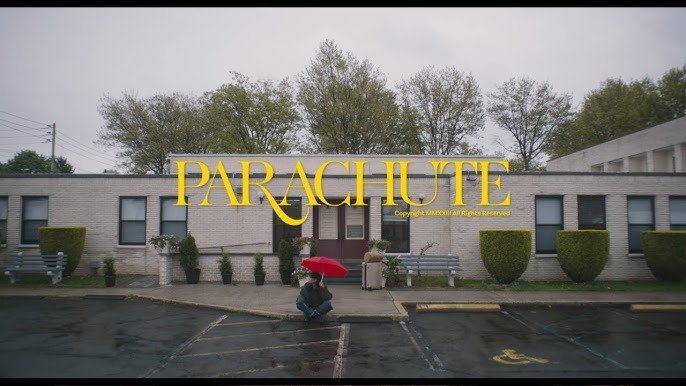
Parachute
In 2007, soon after her sit as brittle, sizeist mean girl Amber Von Tussle in Adam Shankman’s popular ‘Hairspray’, actor Brittany Snow penned an article for People explicating her longstanding fight with anorexia as well. Yet in a cultural moment that was rather uncomfortable with young female celebrities having mental disorders it was the same year when Britney Spears decided to shave off all her hair her op-ed did not elicit a significant response. Now, 16 years and somewhat a radical change in societal views later, the sheer sincerity of the directorial debut of Snow is quite the counterargument to those who claimed that she was merely attention-seeking during that time. Parachute, though modified and expanded in scope, does early pull its ripcord, completely forgoing the safe landing that its self-loathing, dysfunctional characters were deprived of, and taking the course that the former Snow had to endure, and feeling every bit of it.
The movie, which was co-written by Snow and Becca Gleason, strikes deep chords and this without a doubt shows that the actress even though remembered for the seemingly rough and adventurous blockbuster series ‘Pitch Perfect’, has a gift of working the camera, more so, the directorial one. However, whether this unassailable truth makes for a particularly riveting drama is a different story, one that two excellent and engaging central performances largely answer in the affirmative. Thomas Mann is given the best showcase for his true, a bit nerdy chivalry since ‘Me and Earl and the Dying Girl’ and a remarkable Courtney Eaton (‘Yellowjackets’) has the bravery to show the negative more archetypal and less charming tendencies of a character whose negative is the conceptual introduction with whom the narrative is an entire concept.
Riley (Eaton) and Ethan (Mann) first meet on the day of her discharge from a rigorous rehabilitation program designed for patients battling multiple overlapping disorders an eating disorder, body dysmorphia, infatuation with an ex-boyfriend and a severe dependence into doom scrolling through julka glamour oppressed social media sites. Such things as weekly meetings with a wonderfully sympathetic psychiatrist (Gina Rodriguez) form part of her rehabilitation program, only the program has made it very inconvenient as Riley is not allowed to date for at least one year. And so an effort to ignore this regulation on her very first night ends in an awkward exchange instead.
That attraction, sweet and naïve as both Eaton and Mann make it, is hard to miss: it is, however, complicated by an awkwardness brought upon by their surface and socially acceptable distinctions. They turn it into celebrated, albeit highly poignant sibling love that is always on the verge of turning into romantic love, in amusing montages where scrappy and unintentionally retro photographs are used in the backdrop for pleasant, era-fitting, indie music. Ethan suggests they build her a pillow fort. Out of love, they sit down to true crime series. He travels all the way across town in the dead of night to bring her a frozen yogurt when she’s down in the dumps. But then is this man’s constancy and sensitivity really beneficial to her or does it simply serve as an excuse? Who is the person in control or being had here? And would they not be very much better off if instead of going through this endless moral ballgame of why are they with each other, they got ahead with romance, however, nonetheless violent that could be?
There is not that much plot left in the “Parachute,” where Ethan’s own difficulties which are the problems of over-excess in any of this, over helper, over patient, over forgiving as if that were itself was a flaw in him are only vaguely related to the more acute subject of a man equally dependent on an alcoholic father (Joel McHale). Before long, the will they won’t they, the should they shouldn’t dynamic of Riley and Ethan begins to dwindle since it is obvious that they will not even if they ought to. But then it does not seem they will.
Similarly, it does not help that the movie also suffers from the same solipsism which is a turn from the perspective of Riley Supporting actors such as Casey (Francesca Reale) who plays Riley’s BFF that seems to always sympathize with her troubles and the older man who appears as her confused boss at the failed dinner theater where she seems to be working a while (a valiant, unexpected cameo support by Dave Bautista) seem to be relegated to being in the background, together with the real world attitudes they hide. As this is going on, Riley Brenner her mother paid their way for her luxuries, including the comforting haven in a New York Flat, the uncaring yet abundant charge card, is sheltered from common obstacles such as paying a rent fee or clearing the telephone bill. It is possible that these are some of the reasons why all such grant holder disorders is so well settled in.
Of course, the remove from the real world is part of the point. A disorder such as that of Riley’s is exactly harmful in that it forces its subject into a self-loathing spiral and in this respect will provide them some power only through self-harm. However, this is inevitably the tendency with all the attention that is paid to Riley with such kind heart and even Kristen Correll’s muted, de glammed photography appears soft and somewhat blurry as if all the sharp corners have been packed away for ‘sanitary’ purposes, and even if this extends to the aesthetic quality of the film, thanks to the efforts of Eaton.
For More Movies Visit Putlocker.